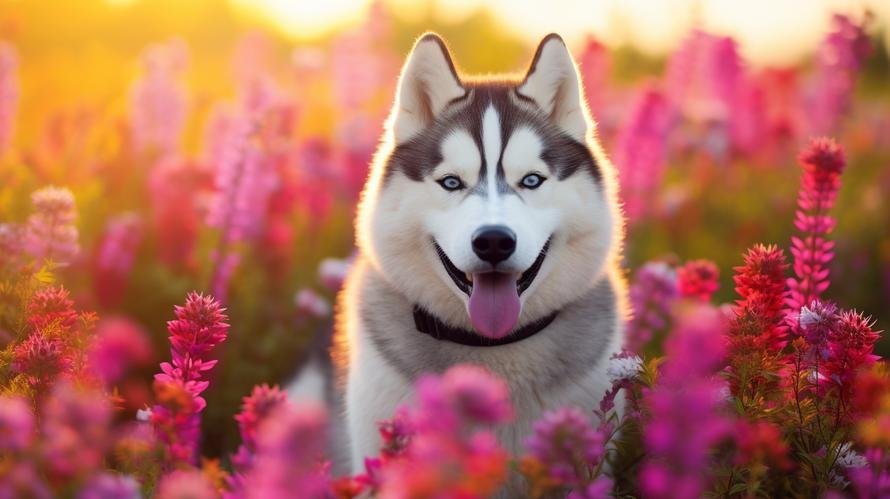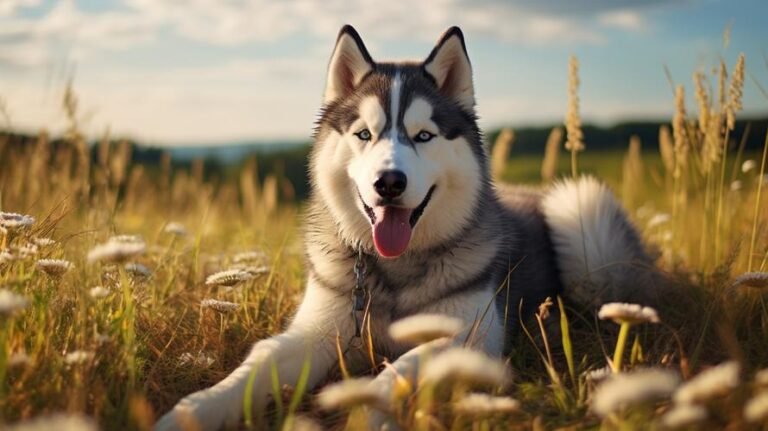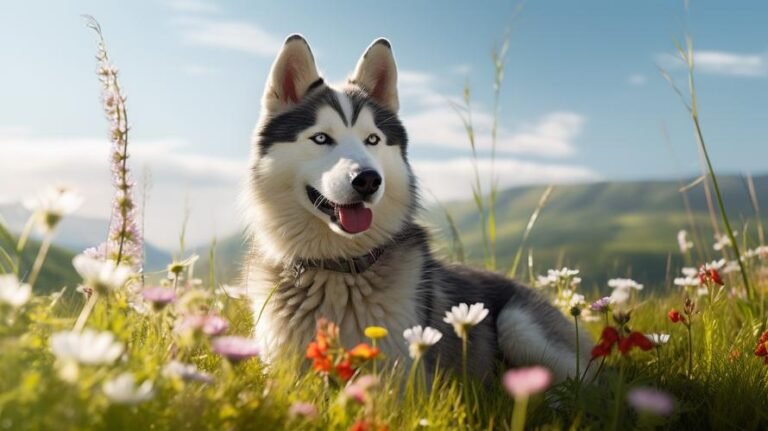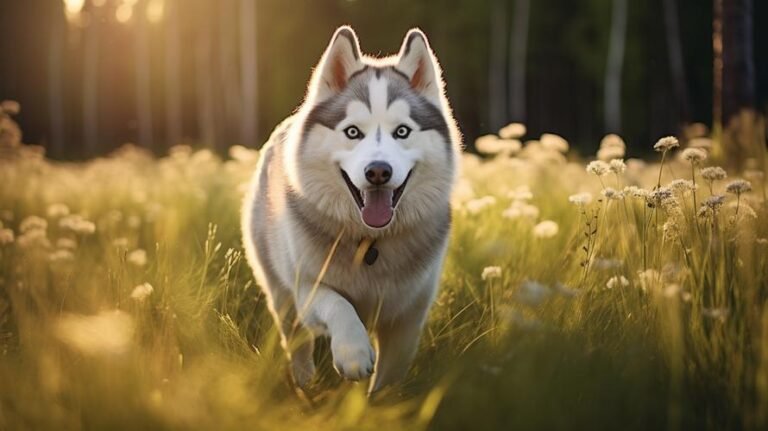Imagine riding on a sled pulled by a team of powerful Siberian Huskies across the icy expanses of Siberia. The cold air is invigorating, your cheeks glowing, your heart pumping with sheer excitement. Now think about what these dogs eat to fuel up their energy. You’d expect a robust meal of fresh meat, right?
Now, translate that scenario to modern-day pet Siberian Huskies, padded around homes or bouncing around backyards. They no longer pull sleds over frozen miles, nor do they hunt their own food. In the comfort of homes, their meals are served in shiny bowls, often consisting of commercial dog food.
In recent years, a hot topic in canine circles is about the appropriateness of grain in dog diets. It comes as no surprise to see grain-free food labels staring back at us from store shelves. But the main question is, should Siberian Huskies eat grain-free diets? Let’s travel down the nutritional path of a Siberian Husky to find out.
Siberian Huskies, originally bred by the Chukchi tribe in north-eastern Siberia, were used for sledding and hunting. Back then, their diet majorly consisted of fish and seal meat, with an occasional intake of berries. Basically, it was a high protein, low carbohydrate diet. It wouldn’t be a stretch to say that grains played a minimal role in their early dietary habits.
In today’s environment, Siberian Huskies are active and robust dogs that require balanced nutrition to stay healthy. The main constituents of their diet, according to the National Research Council of the National Academies, should be proteins, carbohydrates, fats, vitamins, and minerals. With this in mind, the question arises, can grains be included in this mix?
Grains, including corn, wheat, rice, and oats are a good source of digestible carbohydrates, proteins, and essential nutrients like Vitamin E, fiber and linoleic acid. A husky on a grain-free diet stands to miss out on these nutrients. Opponents of grain-based diets argue that dogs, including huskies, are primarily carnivores and are not “designed” to digest grains. However, science says otherwise. Over centuries of domestication, dogs have evolved to digest carbohydrates effectively, courtesy of genes their wolf-ancestors didn’t have.
An argument against grains and in favor of the grain-free diet involves food allergies in dogs. However, in reality, dogs are more likely to be allergic to meats like beef, dairy, and eggs than they are to grains. Only about 10% of all allergy cases in dogs are due to food, with grains contributing to a small percentage of that figure.
Now that does not mean grains should make up a significant part of their diet. Dogs primarily need protein, and grains are secondary. Commercial dog foods using grains as fillers should be treated with caution. As such, too much grain can lead to obesity and other health problems in huskies. But remember, the problem lies not in the grains themselves but in the inappropriate proportions.
It’s important to mention the U.S. Food and Drug Administration’s investigation into a potential link between grain-free diets and dilated cardiomyopathy (a heart disease) in dogs. Although still ongoing, current evidence raises concerns about diets free of grains.
Ultimately, the debate isn’t about going completely grain-free or stuffing your husky with grains. It’s about balance. It’s about feeding them a well-rounded diet packed with essential nutrients.
Consult your vet to create a diet plan that suits your husky’s requirements. If you decide to include grains, opt for whole grains that are great sources of fiber and help to control weight. Keep your eyes open for any adverse reactions, food allergies, or changes in behavior, and adjust feeding accordingly.
Remember, just like for us humans, what goes into your Siberian Husky’s food bowl plays a crucial role in their overall health. Whether grain-free or not, the focus should always be on meeting your pet’s individual nutritional needs for a happy and healthy life. After all, you want to keep their tails wagging, don’t you?



